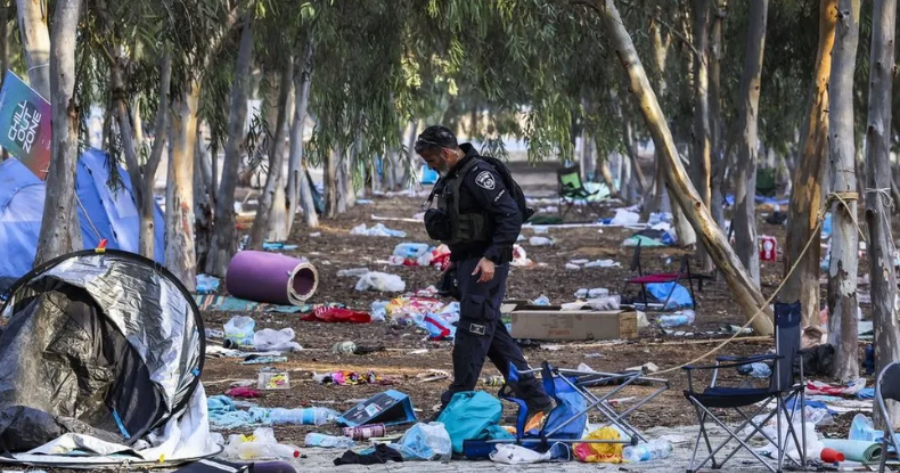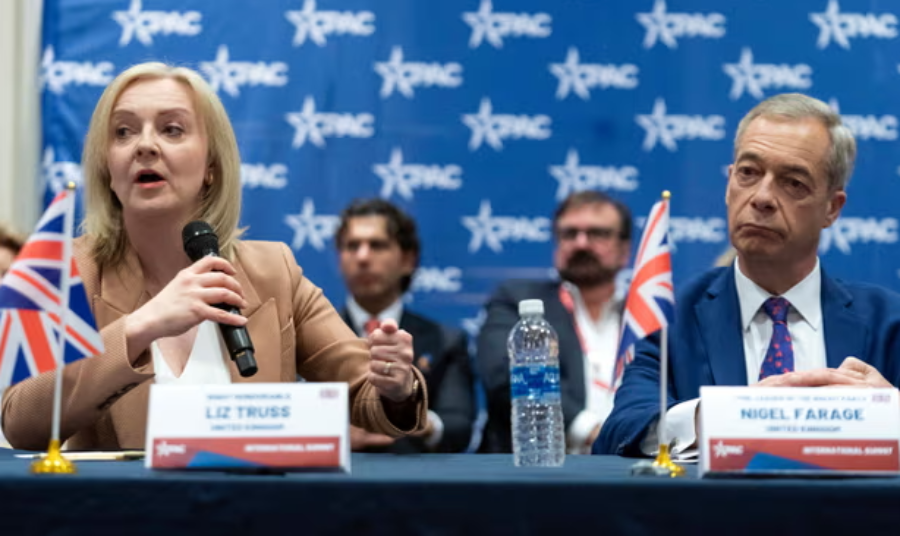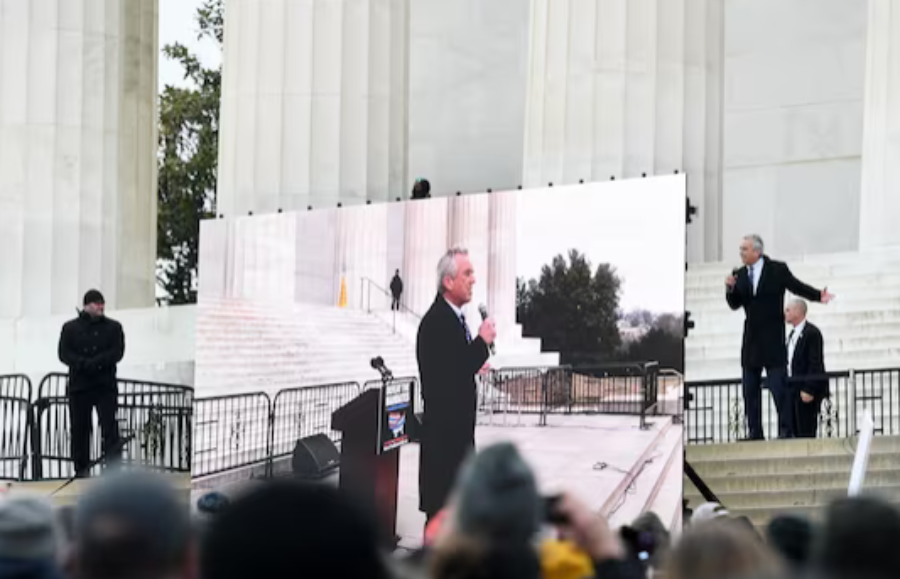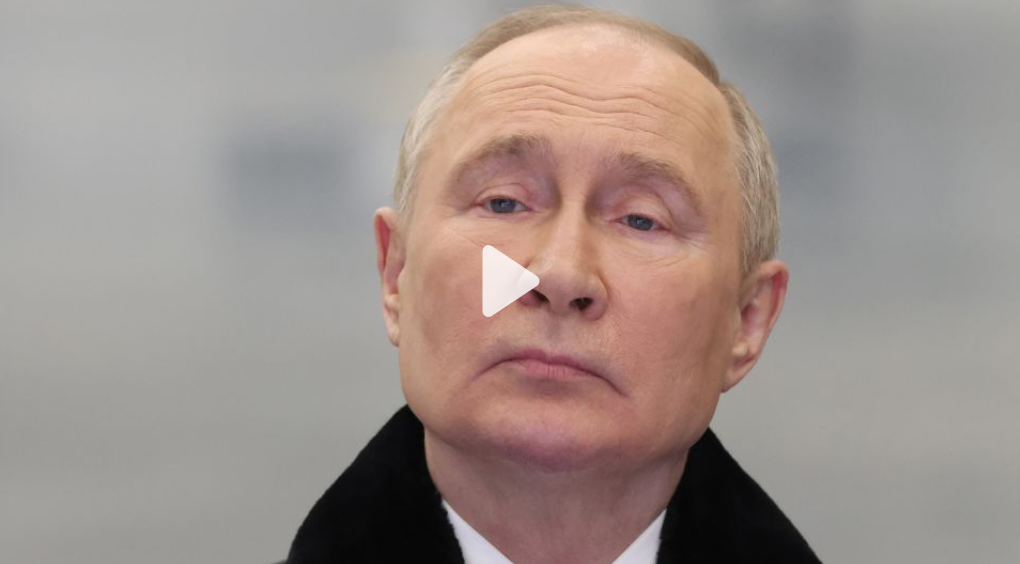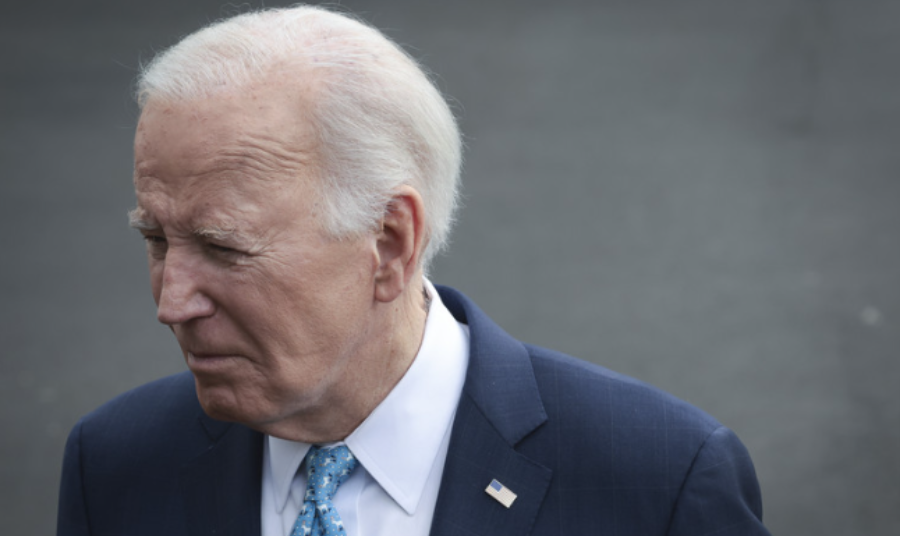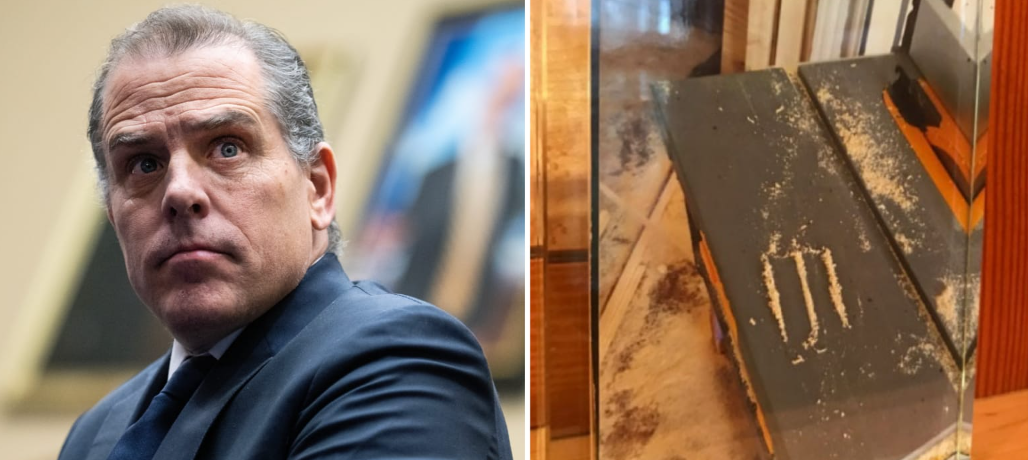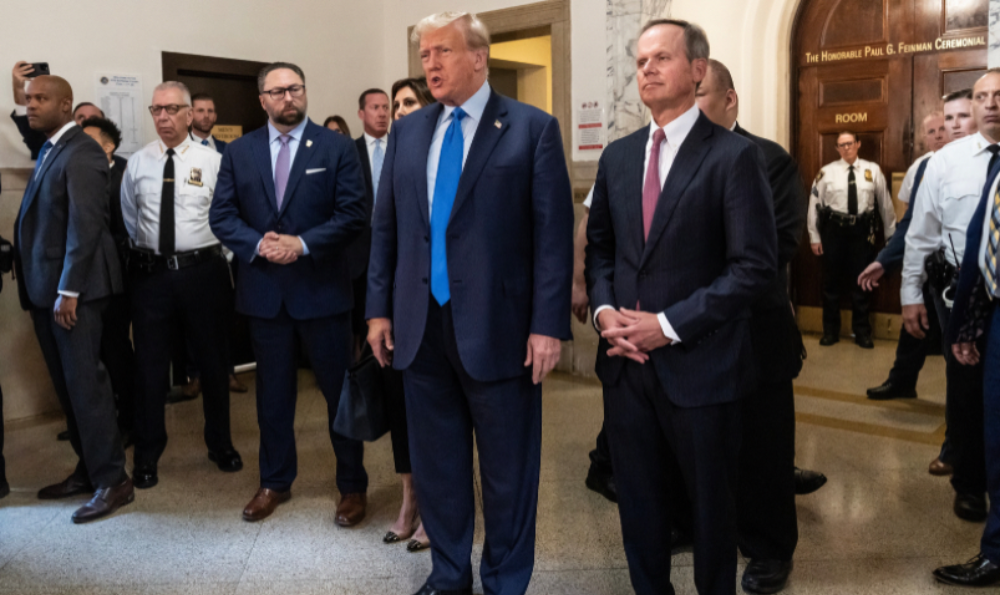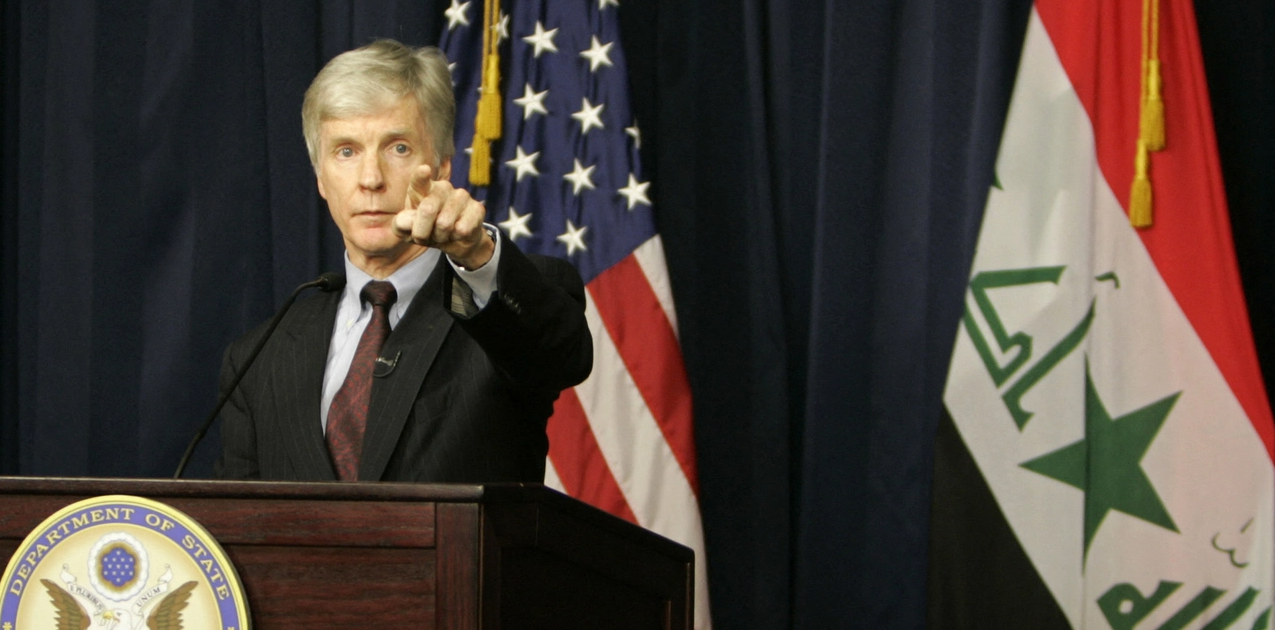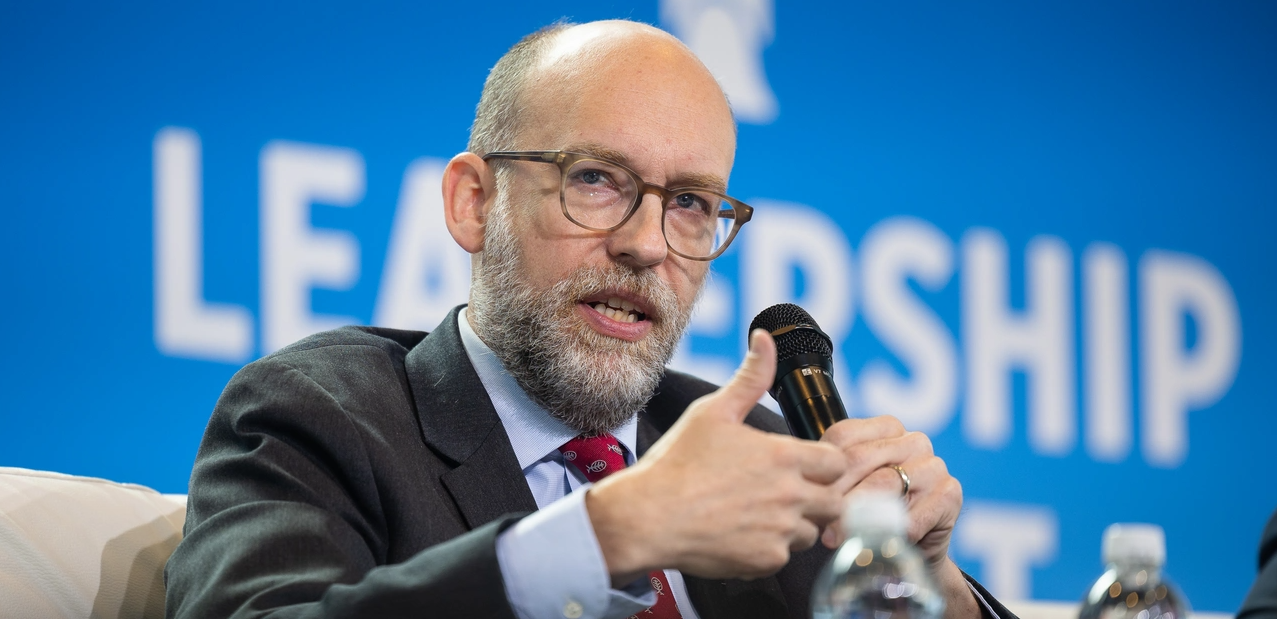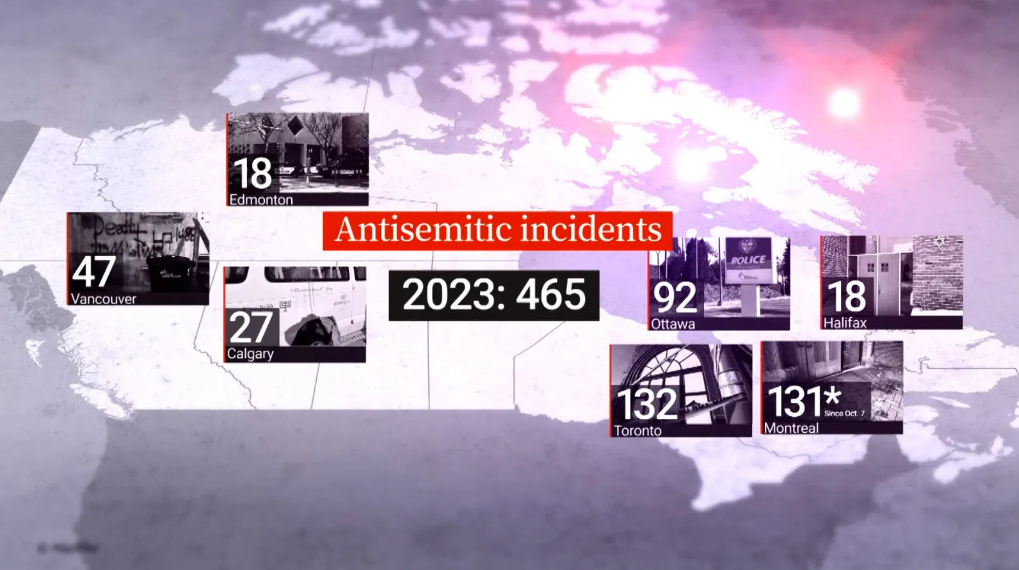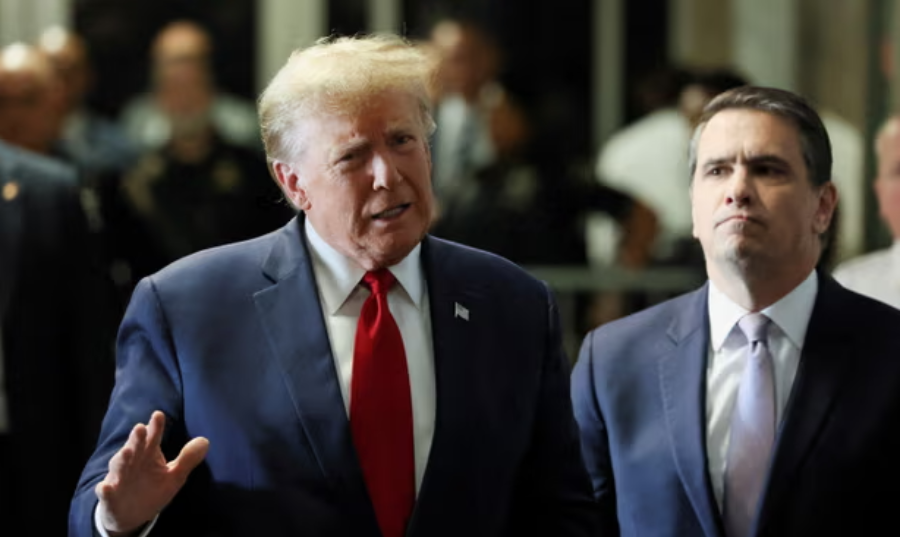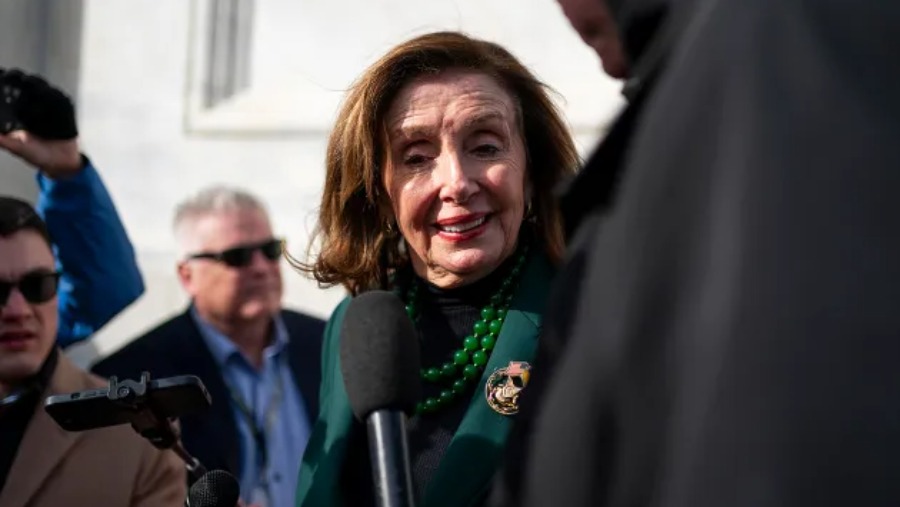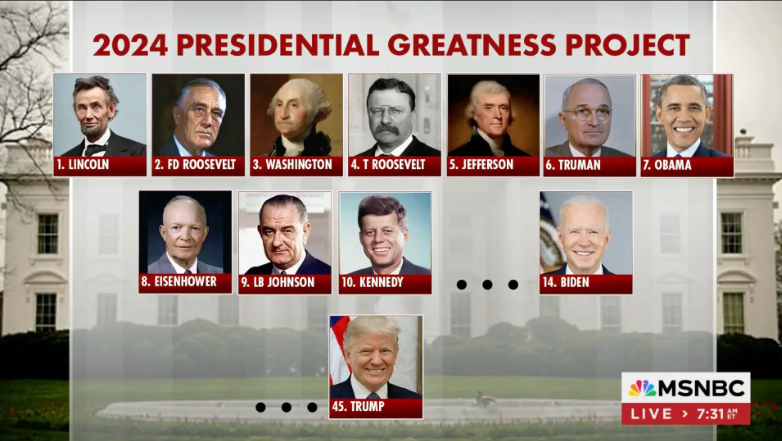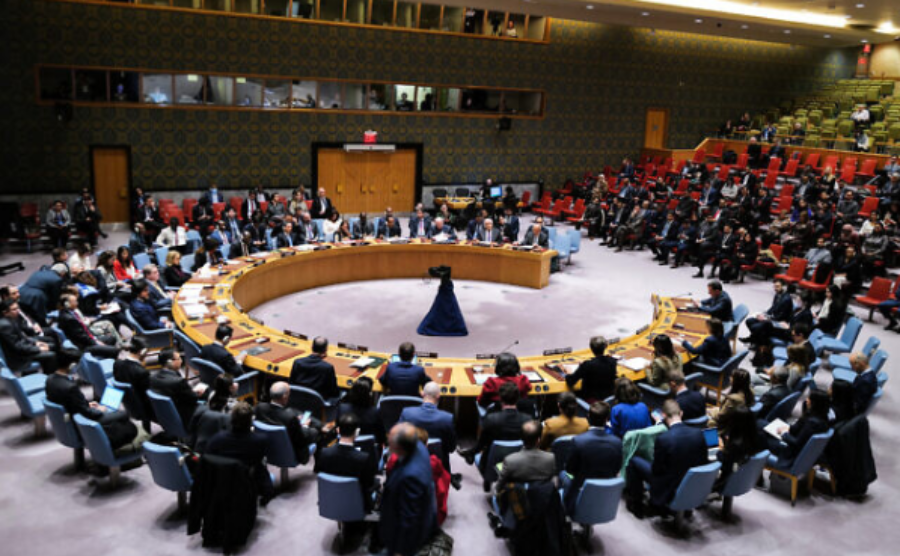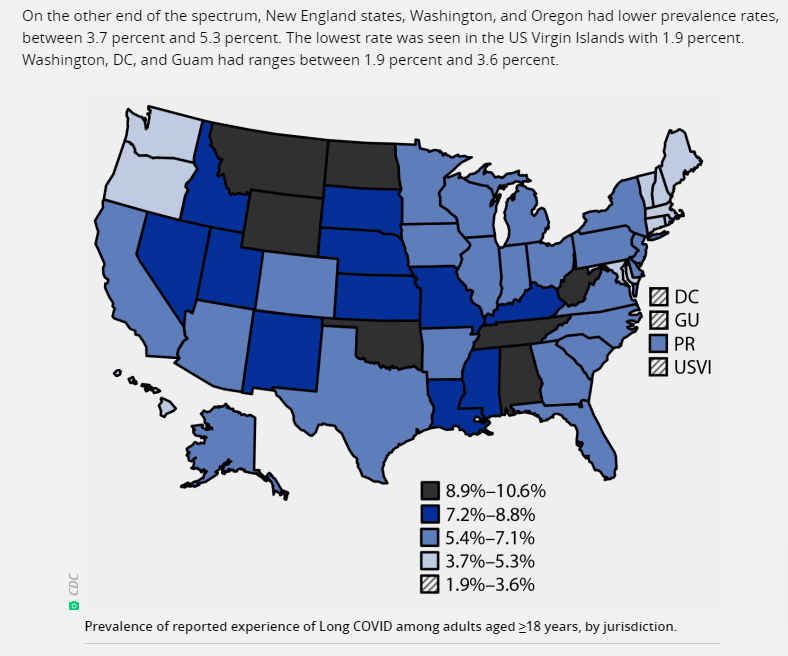-
Posts
10,051 -
Joined
-
Last visited
Content Type
Events
Forums
Downloads
Quizzes
Gallery
Blogs
Everything posted by Social Media
-
Israeli Report: Hamas Accused of Systematic Sexual Violence A recent report from the Association of Rape Crisis Centers in Israel (ACCRI) has brought to light disturbing allegations against Hamas militants. The report claims that during the attacks on October 7th, Hamas gunmen perpetrated sexual crimes that were both systematic and intentional. Hamas has denied its gunmen sexually assaulted women during the attacks. On 7 October, hundreds from the Palestinian armed group infiltrated southern Israel, where they killed about 1,200 people and took 253 others hostage. Israel responded by launching a military campaign in Gaza, during which 29,300 people have been killed, according to the Hamas-run health ministry. Warning: Contains graphic descriptions of rape and sexual violence Reports of sexual violence carried out by Hamas - which is proscribed as a terrorist organisation by Israel, the UK and others - began to emerge soon after 7 October and have accumulated steadily ever since. A senior Israeli police officer told British MPs last month there was "clear evidence" - collected from forensic investigations as well as from hundreds of statements by witnesses and first responders - that sexual crimes had been committed on a scale large enough to define it as a crime against humanity. It found that the 7 October attacks included "brutal acts of violent rape, often involving threats with weapons, specifically directed towards injured women". "Many rape incidents occurred collectively, with collaboration among the perpetrating terrorists," the report says. "In some cases, rape was conducted in front of an audience, such as partners, family, or friends, to increase the pain and humiliation for all present." "Some Hamas members pursued victims who escaped the massacre, dragging them by their hair with screams. The majority of victims were subsequently killed during or after the sexual assault." It also cites various sources as indicating that many victims' bodies were "found mutilated and bound, with sexual organs brutally attacked, and in some cases, weapons were inserted into them". The report concludes that there is "a clear picture of identical patterns of action repeated in each of the attack zones" - the Nova festival, homes in kibbutzim and villages near the Gaza border, and Israeli military bases. Several Nova festival survivors reported cases of gang rapes, "where women were abused and handled between multiple terrorists who beat, injured, and ultimately killed them", it says. First responders and volunteer body collectors who went to border communities witnessed signs of sexual violence on women and girls, as did those who identified the bodies of female soldiers killed at bases. The report also warns that information from released hostages suggests abuse has continued in captivity - an allegation that Hamas has denied. The BBC's Paul Adams in Jerusalem says this is something Israeli officials are extremely reluctant to talk about openly, out of respect for anxious family members. But they do say that one reason Hamas is still holding female hostages is that does not want their stories to be told. The BBC has also seen and heard evidence of rape, sexual violence and mutilation of women. The ACCRI says it has submitted its findings to the UN Special Representative on Sexual Violence in Conflict, Pramila Patten, who is carrying out a similar investigation and visited Israel last month. Israel has complained that the UN and other international organisations have been slow to respond to the allegations, and the ACCRI's executive director said its report now left them "no room for denial or disregard". 23.02.24 Source
-
- 1
-

-
Liz Truss's CPAC Speech: A Tale of Victimhood and Right-Wing Alliance Former British Prime Minister Liz Truss made waves at the Conservative Political Action Conference (CPAC) in the US, positioning herself as a populist warrior against the perceived "deep state" in the UK. Speaking alongside figures like Nigel Farage and Steve Bannon, Truss painted a picture of herself as a victim of bureaucratic forces thwarting her plans for reform. Truss lamented the power shift from elected officials to bureaucratic entities known as "quangos" in the UK, likening them to America's "deep state." She cited her short-lived tenure as PM, during which she attempted to enact tax cuts and reduce the administrative state, only to face backlash from entrenched interests. The concept of the "deep state" resonated with CPAC's audience, who embraced Truss as a champion of conservative values. Bannon, in his speech, echoed Truss's sentiments, calling for the dismantling of the administrative state to save the country. Truss's appearance at CPAC highlights the growing alliance between right-wing movements across the globe, with figures like Farage and Bannon finding common cause with American conservatives. The conference served as a platform for Truss to promote her book and align herself with the anti-globalist agenda championed by CPAC attendees. However, Truss's narrative of victimhood and resistance to the "deep state" raises questions about her leadership and political strategy. Critics argue that her failed attempts at governance and reliance on conspiracy theories undermine her credibility as a leader. As Truss continues to navigate the political landscape, her alliance with the far-right and embrace of populist rhetoric will likely shape her future trajectory. Whether she can translate her CPAC appearance into political success remains to be seen, but her presence at the conference underscores the global reach of right-wing movements and their influence on conservative politics. 23.02.24 Source
-
Misadventures of a Canadian Family in Russia: A Cautionary Tale In a bizarre turn of events, a Canadian family seeking refuge from what they deemed as "wokeness" and LGBTQ+ acceptance in their home country found themselves in a series of misfortunes upon relocating to Russia. Arend Feenstra, a right-wing YouTuber and patriarch of the family, made the decision to move his wife and eight children to Russia, citing concerns about the perceived liberal ideology prevalent in Canada. However, their grand plan of escaping to Russia quickly turned into a comedy of errors. Despite their noble intentions, the Feenstra family found themselves ill-prepared for life in Russia, lacking even the basic knowledge of the language. This became evident when Anneesa Feenstra, the matriarch, struggled to differentiate between male and female restrooms, highlighting their lack of cultural awareness. Their initial weeks in Russia were marked by acts of kindness from locals, who donated winter clothing to the family and offered assistance with language barriers. However, their goodwill couldn't mitigate the family's financial woes. The Feenstras encountered difficulties accessing their funds due to banking regulations and language barriers, leading to frustration and public outbursts. A video documenting their challenges was posted and subsequently deleted, amidst backlash and accusations of disrespect towards Russia. Arend Feenstra attempted to downplay the incident, attributing it to a "misunderstanding" caused by the language barrier. As the family grapples with their new reality, they have enlisted the help of Russian authorities for immigration assistance. Yet, their timing couldn't be worse, as Russia has recently intensified its crackdown on LGBTQ+ rights, further complicating their situation. In a bitter irony, the family's attempt to seek refuge in a country perceived as more conservative has only exposed their naivety and ignorance. Their misadventure serves as a cautionary tale about the perils of making impulsive decisions based on misconceptions and ideological biases. As the Feenstras navigate the challenges of life in Russia, one can't help but wonder if their quest to escape "wokeness" has led them to a place where intolerance and authoritarianism reign supreme. Only time will tell if they can adapt to their new environment or if their Russian dream will turn into a nightmare. 23.02.24 Source
- 90 replies
-
- 24
-

-

-
Uncovering the Lucrative World of COVID Misinformation: Tax Records Reveal In a detailed analysis of tax records, The Washington Post has uncovered a concerning trend: major nonprofits capitalizing on the spread of COVID misinformation have collectively amassed over $118 million between 2020 and 2022. These organizations, known for their dissemination of medical falsehoods, have utilized this funding to bolster their influence in various sectors, including state legislatures, courtrooms, and communities nationwide. Among the prominent groups highlighted in the investigation are Children’s Health Defense, founded by Robert F. Kennedy Jr., which saw a staggering increase in revenue to $23.5 million in 2022 alone, and the Informed Consent Action Network, whose revenue nearly quadrupled to approximately $13.4 million during the same period. Additionally, the Front Line Covid-19 Critical Care Alliance and America’s Frontline Doctors, initially receiving $1 million combined in 2020, experienced a significant surge to over $21 million combined in 2022. These organizations, often at odds with scientific consensus, spread doubts about vaccine safety and promote alternative treatments for COVID-19, despite evidence to the contrary. Such misinformation, according to Arthur Caplan, a medical ethics expert, poses a grave risk to public health, potentially leading to dire consequences in the long term. The influx of funding has not only enabled these groups to amplify their misinformation campaigns but has also facilitated significant increases in executive compensation. For instance, Robert F. Kennedy Jr. saw his salary double to over $510,000 in 2022, while Del Bigtree, Executive Director of the Informed Consent Action Network, received a 22 percent salary increase to $284,000 during the same period. Moreover, the substantial financial resources have empowered these organizations to wage legal battles against vaccine mandates and other public health measures. Children’s Health Defense, for example, has allocated millions to legal fees and pursued numerous lawsuits challenging vaccine requirements and media outlets. While the sources of funding for these nonprofits often remain undisclosed, The Washington Post investigation identified significant contributions from donor-advised funds, raising concerns about the lack of transparency surrounding these donations. Entities like the National Christian Foundation and DonorsTrust have funneled substantial sums to these groups, further fueling their misinformation campaigns. Public health experts warn that the proliferation of COVID misinformation, fueled by these well-funded organizations, could have devastating consequences, including a resurgence of preventable diseases and increased vaccine hesitancy. As such, there is growing scrutiny and calls for accountability regarding the funding and activities of these groups, with concerns raised about the impact on public health and societal trust in scientific consensus. 23.02.24 Source
-
Putin's Ongoing Influence on US Politics The specter of Russian President Vladimir Putin continues to loom large over US politics, as evidenced by recent developments and ongoing tensions between Washington and Moscow. From allegations of interference in US elections to geopolitical maneuvering, Putin's actions have profound implications for American domestic and foreign policy. Putin's Strategic Assault on American Power: Putin has orchestrated a multi-front assault on American power, leveraging his intelligence agencies, military prowess, global diplomacy, and obstructive statecraft to undermine US influence both at home and abroad. Despite international sanctions and criticism, Putin remains remarkably resilient, bolstering his position through military campaigns and geopolitical alliances. Impact on US Elections and Political Divides: Russian interference in US elections, exemplified by recent accusations against Alexander Smirnov, underscores Putin's ongoing efforts to sow discord and manipulate American democracy. House Republicans' handling of Smirnov's discredited evidence highlights the potential for Russian influence to exacerbate political divisions and undermine trust in democratic institutions. Biden Administration's Response: President Joe Biden has adopted a firm stance against Putin's aggression, rallying NATO allies and providing support to Ukraine in its conflict with Russia. However, Biden's efforts to reset relations with Moscow have been met with resistance, culminating in Putin's invasion of Ukraine and subsequent escalation of tensions. Putin's Geopolitical Strategy: Putin's geopolitical alliances with other US adversaries, such as China, North Korea, and Iran, pose a significant challenge to American global power. The convergence of autocratic regimes dedicated to challenging US dominance further complicates international relations and security dynamics. Historical Context and American Responses: Past attempts to reset relations with Russia, including efforts by Presidents George W. Bush and Barack Obama, have yielded limited success. Despite diplomatic overtures, Putin's antagonistic stance toward the West has persisted, leading to ongoing confrontations and geopolitical rivalries. Conclusion: As Putin continues to assert Russian influence on the world stage, the United States faces a critical juncture in its relations with Moscow. The ongoing struggle for geopolitical supremacy and the impact of Russian interference on domestic politics underscore the enduring significance of Putin's leadership in shaping US policy and global affairs. 23.02.24 Source
-
Alabama Supreme Court Ruling Sparks Debate on Reproductive Medicine A recent ruling by the Alabama Supreme Court, deeming frozen embryos as "children" and potentially holding individuals liable for their accidental destruction, has ignited a contentious debate surrounding reproductive medicine in the United States. The implications of this decision extend beyond legal ramifications, impacting fertility treatments and intersecting with broader discussions on abortion rights. Background: The lawsuit originated from a wrongful death claim filed by three couples whose embryos were inadvertently lost at a fertility clinic in 2020. The Alabama Supreme Court sided with the couples, asserting that frozen embryos should be considered "children" under the state's Wrongful Death of a Minor Act, despite a lower court's ruling to the contrary. Impact on Fertility Treatments: In response to the ruling, Alabama's largest hospital, the University of Alabama at Birmingham health system, has paused its in-vitro fertilisation (IVF) services out of concern for potential criminal prosecution. While the ruling does not explicitly ban IVF, it introduces ambiguity regarding the legality of certain procedures involving embryos. Reproductive Rights and Abortion Debate: The ruling intersects with the broader landscape of reproductive rights and the ongoing abortion debate in the United States. Democratic-leaning states have moved to expand access to abortion following the Supreme Court's decision to overturn Roe v Wade, while Republican-controlled states have enacted more restrictive measures. Alabama, already known for its stringent abortion ban, now faces further scrutiny over its reproductive policies. Political Implications: The ruling has the potential to shape political discourse, with Democrats likely to emphasize the protection of fertility treatments as a key platform issue. Conversely, Republican politicians, often aligned with anti-abortion sentiments, may view the decision as a victory for the sanctity of life. Future Outlook: While the ruling currently applies only within Alabama, its implications could resonate nationwide. Other states may consider similar legislation or legal challenges, potentially influencing the broader landscape of reproductive medicine and abortion rights in the United States. In summary, the Alabama Supreme Court ruling on frozen embryos has sparked debates on reproductive medicine, intersecting with broader discussions on abortion rights and shaping political narratives ahead of upcoming elections. 23.02.24 Source
-
In the summer of 2020, Alexander Smirnov, a longtime FBI informant with ties to Russian contacts, made explosive allegations regarding the Biden family and their purported involvement with Ukrainian natural gas company Burisma Holdings. According to Smirnov, Burisma executives claimed that Hunter Biden was added to the board to shield the company from potential issues, and that both Hunter and Joe Biden received bribes totaling $10 million to ensure the firing of Ukraine's Prosecutor General Viktor Shokin. These claims, detailed in a four-page report internally circulated within the FBI, quickly gained traction among House and Senate Republicans seeking to impeach Joe Biden. However, subsequent investigations revealed that Smirnov's story was a fabrication, with no evidence to substantiate his claims. Moreover, it was alleged that Smirnov's tale may have been planted by a Russian intelligence source, raising concerns of a disinformation campaign aimed at discrediting Biden. The revelation of Smirnov's deception has led to backlash against Republicans who promoted the false narrative, with Democrats accusing them of falling victim to Russian disinformation tactics. The House impeachment effort, already losing momentum, now faces further uncertainty, with some Republicans shifting focus to other issues. In response, Biden's allies have condemned the GOP's involvement in spreading unsubstantiated claims, calling for accountability and highlighting the potential consequences of perpetuating falsehoods based on Russian intelligence operations. As the case unfolds, it underscores the need for vigilance against foreign interference and the importance of fact-checking and verification in political discourse. The ramifications of Smirnov's fabricated tale serve as a cautionary tale in an era of heightened disinformation campaigns and partisan polarization. 22.02.24 Source
-
New Research Using AI Demonstrates Sex-Based Differences in Brain Organization A recent study conducted by researchers from Stanford University has provided compelling evidence supporting the notion that men's and women's brains work differently. Utilizing artificial intelligence, the study successfully distinguished between male and female brains with over 90% accuracy based on distinct "hotspots" observed in brain scans. Lead author Vinod Menon, a professor of psychiatry and behavioral sciences, emphasized the significance of recognizing sex differences in brain organization, highlighting their potential impact on diagnosing and treating neuropsychiatric conditions. Published in the journal Proceedings of the National Academy of Sciences, the research sheds light on the crucial role of sex in cognitive development, aging, and neurological disorders. Using AI, the researchers identified differences in brain networks associated with self-focus, habit formation, rewards, and emotion regulation. Their findings suggest that functional disparities in the brain between sexes can significantly influence behavior. Contrary to the notion that sex-based differences are merely societal constructs, the study challenges this perspective by demonstrating consistent and replicable disparities in brain organization between men and women. This contradicts the argument that observed differences are solely attributed to gendered experiences rather than biological influences. Gina Rippon, an emeritus professor of cognitive neuroimaging, cautioned against oversimplifying the findings, urging a nuanced understanding of the interplay between biological and societal factors in shaping brain differences. She emphasized the need to consider both sex and gender influences in interpreting the observed disparities. In conclusion, the study's findings contribute to a deeper understanding of sex-based differences in brain organization, offering insights into potential vulnerabilities and differences in psychiatric and neurological disorders. 22.02.24 Source
-
Biden Mulls Executive Action to Restrict Asylum at US-Mexico Border, Sparking Controversy President Joe Biden is reportedly considering executive action aimed at limiting migrants' ability to seek asylum at the US-Mexico border if they entered illegally, a move reminiscent of measures taken during the Trump era. This potential maneuver, if implemented, is poised to provoke strong opposition from immigration advocates and progressives. The issue of border management has been a persistent challenge for the Biden administration amid surging migration levels across the Western hemisphere. The proposed action seems to mirror some of the stringent provisions in border compromise legislation that was thwarted by Republicans, highlighting the administration's efforts to demonstrate toughness on border security ahead of upcoming elections. While no final decision has been reached, the contemplated action involves utilizing authority known as 212f to crack down on unlawful border crossings between ports of entry. However, the specifics of how this proclamation would be executed and its divergence from previous Trump-era policies remain unclear. Legal experts within the administration are reportedly assessing the proposed action. The White House has refrained from commenting on the deliberations. However, a spokesperson emphasized the administration's commitment to pursuing bipartisan border security measures through congressional legislation, lamenting the lack of progress in securing additional resources and policy reforms. President Biden hinted at the possibility of border closure if the proposed legislation had been enacted, aligning with one of the stringent measures included in the bill. Nevertheless, past attempts by the Trump administration to restrict asylum seekers using 212f were thwarted by legal challenges, highlighting the limitations of presidential authority in this domain. Amid discussions on border security funding, there have been considerations of declaring a national emergency to bolster resources. However, the White House's supplementary request for $14 billion in border security funding remains stalled in Congress, underscoring the ongoing challenges in addressing border management issues comprehensively. As the Biden administration navigates the complexities of immigration policy, the potential implementation of executive actions to restrict asylum at the border is poised to reignite debates over border security, legal authority, and humanitarian concerns. 22.02.24 Source
-
Advancing Fusion Energy: Harnessing AI to Overcome Challenges Scientists in the pursuit of fusion energy have achieved a significant breakthrough by leveraging artificial intelligence (AI) to address a key obstacle in the quest for near-limitless clean energy. Fusion energy, hailed as a potential solution to the climate crisis, has long been hampered by complexities and instabilities inherent in the fusion process. However, researchers from Princeton University and the Princeton Plasma Physics Laboratory have now demonstrated the efficacy of AI in forecasting and preventing these instabilities in real time. The conventional method for achieving fusion energy involves heating hydrogen variants to extreme temperatures within a tokamak, a donut-shaped machine, to create a plasma state. Yet, controlling this plasma and preventing disruptions has been a persistent challenge. The team's experiments conducted at the DIII-D National Fusion Facility revealed that their AI controller could predict potential plasma instabilities up to 300 milliseconds in advance, allowing for timely intervention to avert disruptions that would otherwise terminate the fusion reaction abruptly. Egemen Kolemen, a professor at Princeton University and co-author of the study, emphasized the significance of this advancement, particularly in ensuring the continuous and stable operation of fusion reactors. By addressing disruptions and instabilities, confidence in the feasibility of running fusion machines without complications is bolstered, paving the way for sustained fusion energy production. Fusion energy, akin to the process that powers stars, holds immense promise as a clean and virtually limitless energy source. Recent milestones, such as sustaining fusion energy for five seconds near the English city of Oxford and achieving ignition in California, underscore progress in the field. However, commercial viability and widespread implementation of fusion energy remain distant goals, necessitating continued research and development efforts. While fusion energy offers immense potential for combating climate change, urgent action to reduce planet-warming pollution remains imperative in the interim. Scientists stress the need for significant emissions reductions in this decade to mitigate the escalating impacts of the climate crisis. As researchers continue to push the boundaries of fusion technology, the integration of AI represents a crucial step forward in unlocking the transformative promise of clean, sustainable energy for future generations. 22.02.24 Source
-
Hunter Biden's Legal Battle: Mistaken Identity and Alleged Injustice Hunter Biden, son of President Joe Biden, finds himself embroiled in a legal saga filled with twists and turns, the latest being a contentious dispute over alleged drug use. His lawyers have launched a scathing attack on the Special Counsel's office, accusing them of a glaring error that could potentially tarnish Biden's reputation. The crux of the matter revolves around a photograph purportedly depicting lines of cocaine on a wooden plank. Biden's legal team contends that the substance in question is not cocaine but rather sawdust, a misunderstanding they deem reminiscent of a comedic plotline rather than a serious prosecution by the U.S. Department of Justice. Further unraveling the narrative, it was revealed that the photo was taken by a master carpenter, who, himself a former cocaine addict, orchestrated the shot as a symbolic message of overcoming addiction. The image was sent to Biden by his psychiatrist, Dr. Keith Ablow, as a source of inspiration, highlighting the power of redemption and personal transformation. However, the fallout from this misinterpretation extends beyond mere embarrassment. Biden's attorneys argue that the prosecution's reckless assertion has unfairly damaged his reputation and undermined his defense. They condemn the sensationalism of the claim, accusing the Justice Department of prejudicing Biden in the court of public opinion. While the dispute over the photograph continues to unfold, it is merely one chapter in Biden's ongoing legal saga. Facing federal charges related to a 2018 gun purchase, Biden maintains his innocence amidst allegations of political bias and vindictiveness. The collapse of a plea agreement and subsequent tax-related charges further compound his legal woes, with potential consequences including a lengthy prison sentence. Amidst the legal maneuvering, the recent indictment of Alexander Smirnov, a former FBI informant charged with fabricating claims against Biden, raises questions about the integrity of the case. Biden's lawyers argue that Smirnov's false allegations tainted the investigation, highlighting the perils of pursuing baseless claims and the dangers of unchecked prosecutorial discretion. As the legal battle rages on, Hunter Biden's plight serves as a cautionary tale about the complexities of justice, the fallibility of human judgment, and the enduring quest for truth amidst a sea of conflicting narratives. In the pursuit of accountability, it is imperative to uphold the principles of fairness, transparency, and impartiality, lest the pursuit of justice itself becomes a casualty of political agendas and personal vendettas. 22.02.24 Source
-
Trump's Bankruptcy Gambit: Delaying Justice Amid Legal Troubles As former President Donald Trump faces mounting legal challenges, including substantial civil judgments for defamation, speculation swirls around the possibility of him resorting to a drastic measure: personal bankruptcy. Echoing tactics employed by other controversial figures like Alex Jones and Rudolph Giuliani, Trump could utilize bankruptcy filings to stave off court-ordered payments and buy himself time in the face of mounting legal pressure. The looming deadline of March 12 adds urgency to Trump's predicament, as it marks the cutoff for him to appeal a hefty $83.3 million defamation judgment awarded to E. Jean Carroll, an advice columnist. With court rules mandating a demonstration of financial capability to pursue an appeal, Trump finds himself at a crossroads, faced with limited options. While paying the substantial award seems unlikely, given Trump's known penchant for litigation and delay tactics, the prospect of posting a massive cash bond or securing a bond through a lender appears equally daunting. Moreover, Trump's financial woes extend beyond the Carroll judgment, with additional liabilities stemming from a recent order to disgorge ill-gotten gains related to persistent business fraud, amounting to over $450 million. Filing for personal bankruptcy emerges as a strategic maneuver to halt ongoing legal proceedings and buy Trump time to navigate the turbulent waters of litigation. By initiating bankruptcy proceedings, Trump could effectively press pause on civil judgments, including the Carroll defamation case and other pending lawsuits, thus shielding himself from immediate financial obligations. Although bankruptcy offers temporary respite, it does not absolve Trump of his legal liabilities. Legal experts caution that bankruptcy may merely delay the inevitable, rather than providing a permanent solution. While Trump may seek refuge in bankruptcy court to shield his assets and forestall payment, the underlying judgments remain unresolved, awaiting eventual resolution. Trump's potential recourse to bankruptcy underscores his reliance on legal stratagems honed over decades, influenced by the teachings of his mentor, the notorious Roy Cohn. From delaying proceedings to attacking adversaries and steadfastly denying wrongdoing, Trump's legal playbook reflects a blend of aggressive tactics and audacious defiance. Despite Trump's attempts to portray bankruptcy as a strategic maneuver against a purportedly biased legal system, skeptics question the efficacy of such tactics in the long run. While bankruptcy may offer a temporary reprieve, it does little to address the fundamental legal challenges confronting Trump or alleviate the specter of accountability for his actions. As Trump contemplates his next move amidst mounting legal woes, his potential embrace of bankruptcy serves as a testament to the enduring complexities of justice and the lengths to which individuals may go to evade accountability. Whether bankruptcy will serve as a shield or a temporary respite in Trump's legal saga remains to be seen, but one thing is certain: the wheels of justice continue to turn, undeterred by legal maneuvers or political theatrics. 22.02.24 Source
-
Ukrainian Troops Face Captivity and Chaos Amid Avdiivka Retreat The fall of Avdiivka to advancing Russian forces has sent shockwaves through Ukraine, with hundreds of troops feared captured or missing in the aftermath of a chaotic retreat. This devastating loss not only deals a blow to morale but also underscores the urgent need for enhanced military assistance as dwindling supplies and recruitment challenges further strain Ukraine's defense capabilities. Senior Western officials and Ukrainian soldiers on the ground report varying estimates of the number of troops captured or unaccounted for, with figures ranging from 850 to 1,000 soldiers. Despite attempts by Ukrainian military officials to downplay the significance of these losses, the capture of hundreds of soldiers, particularly those with battlefield experience, exacerbates the pressing need for reinforcements and intensifies recruitment efforts. The retreat from Avdiivka, though planned, was marred by disorganization and ill-preparedness, leaving many soldiers vulnerable to capture amidst relentless artillery fire and aerial bombardment. Communication breakdowns and logistical challenges further compounded the chaos, highlighting the complexities of executing a strategic withdrawal under duress. While American officials downplay the strategic impact of Avdiivka's fall, emphasizing that Russian gains in eastern Ukraine do not guarantee a collapse of Ukrainian defenses, the capture of hundreds of soldiers could significantly alter this assessment. Moreover, the encirclement tactics employed by Russian forces underscore the ongoing challenges faced by Ukrainian troops in defending key territories against relentless aggression. The harrowing scenes of retreat, documented in unverified social media videos and photos, depict the immense toll exacted by the conflict, with Ukrainian soldiers facing the grim reality of encirclement and capture. Reports of Russian forces executing Ukrainian prisoners of war further underscore the brutality of the conflict and the urgent need for international intervention to address humanitarian concerns. Despite Russia's attempts to capitalize on the chaos in Avdiivka through propaganda efforts, the Kremlin's messaging appears disjointed and reactive, reflecting the unanticipated speed of the Ukrainian collapse. The plight of prisoners of war remains a pressing issue, with Ukraine urging Russia to agree to prisoner exchanges to alleviate the suffering of captured soldiers and their families. As Ukraine grapples with the aftermath of the Avdiivka retreat, the international community must redouble its efforts to support Ukrainian forces and address the escalating humanitarian crisis. The need for enhanced military assistance, coupled with diplomatic initiatives to secure the release of prisoners of war, remains paramount in safeguarding Ukraine's sovereignty and defending against further Russian aggression. 22.02.24 Source
-
The Complex Dynamics of Arab States and the Palestinian Question: Insights from Ryan Crocker In the midst of escalating tensions between Israel and Hamas, the plight of Palestinians caught in the crossfire has once again come to the forefront of international attention. However, amid the calls for humanitarian aid and diplomatic solutions, a lesser-discussed aspect of the conflict has emerged: the response, or lack thereof, from Arab states. Former U.S. Ambassador Ryan Crocker, renowned for his extensive diplomatic experience in the Arab world, offers invaluable insights into why Arab states have been hesitant to fully support Palestinians fleeing the violence. At the heart of the issue lies a historical backdrop of complex geopolitical dynamics and shifting allegiances. Despite public declarations of solidarity with the Palestinian cause, Crocker highlights a longstanding undercurrent of "fear and loathing" among many Arab states towards Palestinians. This sentiment, he suggests, has deep roots dating back to pivotal moments such as the 1967 Six Day War and the subsequent emergence of the Palestine Liberation Organization (PLO) as a formidable force. Crocker's analysis sheds light on the pragmatic considerations driving Arab states' responses to the Palestinian crisis. While outwardly advocating for Palestinian rights, many Arab regimes have been wary of empowering Palestinian nationalist movements that could potentially destabilize their own territories. This delicate balancing act, characterized by rhetorical support but limited practical assistance, underscores the nuanced nature of Arab-Palestinian relations. Moreover, Crocker offers a sobering assessment of the broader regional dynamics at play. He emphasizes the divergence between Arab rhetoric and action, citing instances where Arab governments actively worked against Palestinian interests to preserve their own security and stability. From Lebanon to Syria and beyond, the historical record reveals a pattern of Arab states prioritizing self-preservation over unwavering support for the Palestinian cause. The current conflict in Gaza serves as a stark reminder of these entrenched realities. Despite calls for solidarity from the international community, Arab states have largely remained on the sidelines, with some even maintaining diplomatic ties with Israel. Crocker's analysis underscores the sobering reality that, for many Arab regimes, the Palestinian question remains a peripheral concern compared to their own strategic interests and regional ambitions. As the world grapples with finding a path towards peace and stability in the Middle East, Crocker's insights serve as a timely reminder of the intricate web of alliances, rivalries, and historical grievances that shape the region's complex geopolitical landscape. In seeking solutions to the Palestinian crisis, policymakers would do well to heed his nuanced understanding of Arab states' attitudes and motivations, recognizing that lasting peace will require addressing not only the immediate humanitarian needs of Palestinians but also the underlying geopolitical realities that have long shaped their plight. 22.02.24 Source
-
Topic Update: HIMARS Blamed for Bloody Strike on Russian Unit Standing in Field to Wait for General A Ukrainian long-range missile strike shattered a Russian infantry battalion drawn up in parade formation, killing dozens of soldiers as they waited for a top Kremlin-appointed general and other army brass to inspect their ranks, Wednesday reports from both sides of the lines said. Russian milbloggers blamed US-made M2 precision-guided missiles loaded with cluster munitions, and local commanders either ignorant or uncaring about the long-range of the American weapon system, for the devastating attack hitting a training area east of the Kremlin-occupied Ukrainian city of Volnovakha. According to those accounts, two or three GPS-guided rocket-propelled artillery missiles fired by a Ukrainian HIMARS launcher slammed into a field near the Ukrainian town of Trudivske reportedly shortly after 9 a.m. on Tuesday, hitting dozens of men forming up there to receive a ceremonial inspection by Maj. Gen. Oleg Moiseev, area commander and top officer in Russia’s 29th Army. https://www.kyivpost.com/post/28404
-
In a distressing development exacerbating the humanitarian crisis in Gaza, the United Nations World Food Program (WFP) announced on Tuesday a halt in food deliveries to the northern region of the territory. The decision, made in light of escalating chaos and security concerns, threatens to worsen the already dire situation faced by residents, further heightening the risk of starvation amid ongoing conflict between Israel and the Palestinian militant group Hamas. Expressing deep concern over the decision, a WFP spokesperson emphasized the gravity of the situation, acknowledging that suspending deliveries to northern Gaza would undoubtedly lead to a deterioration of conditions, potentially resulting in more lives lost due to hunger. Despite this difficult choice, the organization underscored the imperative of ensuring the safety and security of its staff and beneficiaries, highlighting the necessity of a conducive environment for delivering critical food aid. The decision comes on the heels of a recent report by another UN agency, UNICEF, which revealed alarming levels of malnutrition among children under the age of two in northern Gaza. Shockingly, the study found that one in six children in this demographic are suffering from malnutrition, with three percent experiencing severe wasting, indicating acute undernourishment. These findings underscore the urgency of addressing food insecurity in the region and the critical need for sustained humanitarian assistance. The WFP had only recently resumed its food deliveries to Gaza after a three-week suspension prompted by a strike on a UN relief truck and logistical challenges related to humanitarian coordination. Despite efforts to resume operations and alleviate food shortages, the situation on the ground quickly escalated into chaos and violence. In a harrowing account, the WFP described how its convoy, tasked with delivering essential food supplies, encountered desperate crowds clamoring for assistance and facing gunfire upon entering Gaza City. Tragically, the second convoy's journey northward was marred by incidents of looting and violence, underscoring the breakdown of civil order and the precariousness of humanitarian operations in the region. Multiple trucks were reportedly looted, and a driver was subjected to physical assault, highlighting the dangers faced by aid workers attempting to provide assistance in volatile environments. Despite these challenges, the WFP remains steadfast in its commitment to addressing food insecurity in Gaza and providing vital assistance to vulnerable communities. As the humanitarian crisis in Gaza continues to unfold, the international community must prioritize efforts to alleviate suffering and support initiatives aimed at achieving lasting peace and stability in the region. The plight of Gaza's residents underscores the urgent need for sustained humanitarian assistance and a concerted diplomatic effort to address the root causes of conflict and insecurity. 21.02.24 Source
-
As speculation swirls around the possibility of Donald Trump's return to power, an influential think tank closely aligned with the former president is gearing up to infuse Christian nationalist ideas into a hypothetical second administration, according to documents obtained by POLITICO. Leading this effort is Russell Vought, who previously served as Trump's director of the Office of Management and Budget and maintains a close relationship with him. Vought, now the president of The Center for Renewing America (CRA), is part of a conservative consortium preparing for a potential second term for Trump, with "Christian nationalism" listed as a key priority. Christian nationalists advocate for the prioritization of Christian values in government and public life, believing that the United States was founded as a Christian nation. Despite the country's increasing diversity and secularization, Vought and his allies view Christians as under threat and are poised to advance policies aligned with their beliefs. While specific Christian nationalist policies are not outlined in the documents, Vought has previously supported a restrictive immigration agenda, citing Biblical teachings as justification. He has also aligned himself with William Wolfe, a proponent of Christian nationalism who has advocated for measures such as overturning same-sex marriage and restricting access to contraception. Vought's vision for a second Trump administration includes a robust emphasis on Christian principles, with plans to shape public policy accordingly. This effort is part of a broader strategy by conservative groups to influence the direction of a potential future administration. However, the timeline for these initiatives depends on the outcome of Trump's legal battles and potential Supreme Court rulings on issues such as presidential immunity. Nevertheless, Vought and his allies remain committed to advancing their agenda, buoyed by their proximity to Trump and his base of evangelical supporters. Despite Trump's own lack of devout religious adherence, he has forged strong alliances with Christian conservatives, who have been a reliable voting bloc for him. Trump's campaign rhetoric has often invoked themes of Christian persecution and the need for federal intervention to protect religious freedom. As Vought and his organization seek to renew America's commitment to its Christian heritage, they face opposition from critics who view their agenda as divisive and exclusionary. Nevertheless, they are undeterred in their mission to shape public policy in alignment with their religious beliefs, potentially ushering in one of the most conservative executive branches in modern American history. 21.02.24 Source
- 217 replies
-
- 11
-

-

-
Bank of England Governor, Andrew Bailey, has expressed optimism about the UK economy, indicating "distinct signs of an upturn" despite the recent recession. Bailey addressed a committee of MPs, noting that while the country entered a recession late last year, he believes it will be one of the shallowest recessions in modern times. Bailey highlighted the Bank's role in deliberately cooling down demand in the economy to combat inflation. The Bank's actions, including 14 consecutive interest rate hikes, were aimed at bringing inflation back to its target level of 2% to facilitate sustainable growth. Although the Monetary Policy Committee paused rate hikes last summer, they have refrained from cutting rates due to concerns about future inflation. Bailey emphasized the risks associated with the UK's full employment status, which could potentially increase demand and drive inflation. Additionally, Bailey mentioned concerns about rising energy costs and disruptions to shipping in the Red Sea, which could contribute to inflationary pressures in the latter part of 2024. Regarding financial market speculation about rate cuts in late spring, Bailey clarified that the Bank does not endorse market predictions and emphasized that any decision on rate cuts would be data-driven rather than based on predetermined dates. Deputy Governor Ben Broadbent echoed Bailey's sentiment, emphasizing that decisions on rate cuts would be made based on data rather than specific timelines. 21.02.24 Source
-
In the wake of the Oct. 7 Hamas attack on Israel, Canada has witnessed a distressing surge in antisemitic incidents, raising concerns among community leaders and law enforcement agencies. A comprehensive investigation by Global News, drawing on police data, interviews, and official documents, sheds light on the alarming rise in hate crimes targeting Jewish individuals and institutions across the country. The aftermath of the Hamas attack has seen a dramatic escalation in antisemitic incidents, with homes, businesses, schools, places of worship, and other institutions becoming targets of hate. Canadian intelligence reports have identified Jewish community centers, day schools, synagogues, and grocery stores as potential targets for extremist attacks, highlighting the gravity of the situation. According to police figures, antisemitic incidents have surged in every major city in Canada, doubling or even tripling in some areas. In Toronto alone, antisemitic incidents more than doubled to 132 in the past year, while other minority communities also experienced an increase in hate crimes. This wave of antisemitism has left Jewish communities feeling vulnerable and exposed, with concerns about their safety and well-being. One particularly troubling aspect of this surge in antisemitism is the role of extremist rhetoric and incitement. Canadian intelligence reports have highlighted the spread of antisemitic content and conspiracy theories by violent extremists, particularly through social media channels. Such narratives not only fuel hate crimes but also pose a significant threat to social cohesion and community harmony. The impact of this rise in antisemitism has been deeply felt across Canada, with Jewish individuals and institutions facing threats, vandalism, and intimidation. Incidents such as the shooting at a Jewish school in Montreal and the arson attack on a Jewish-owned grocery store in Toronto underscore the severity of the situation. Moreover, the targeting of Jewish businesses and individuals for their perceived support of Israel has exacerbated tensions and created an atmosphere of fear and distrust. In response to these disturbing developments, community leaders, law enforcement agencies, and government officials have taken steps to address antisemitism and protect vulnerable communities. Increased police patrols, investigations into hate crimes, and condemnation of antisemitic rhetoric have been key components of the response. However, challenges remain in addressing the root causes of antisemitism and promoting tolerance and understanding in Canadian society. As Canada grapples with this surge in antisemitism, it is imperative that all segments of society come together to confront hatred and bigotry in all its forms. By fostering dialogue, promoting education, and standing in solidarity with affected communities, Canadians can work towards building a more inclusive and compassionate society for all. 21.02.24 Source
-
Title: Trump's Legal Calendar Unveiled: Hush Money Trial Set for March 25th, Federal Case's Fate Hangs on Supreme Court The legal saga surrounding former President Donald Trump is entering a pivotal phase as his trial calendar becomes clearer, shedding light on his delay tactics and the impending legal battles ahead. A New York judge recently confirmed that Trump's first criminal trial, concerning allegations of manipulating the 2016 election by concealing hush money payments to an adult film star, will commence in Manhattan next month. Scheduled to start on March 25th and expected to last approximately six weeks, the trial marks a significant development in Trump's legal woes. However, the timing of another federal case in Washington, focusing on Trump's alleged attempts to overturn the 2020 election, hinges on the actions of the US Supreme Court regarding Trump's claims of presidential immunity. The Supreme Court's decision on Trump's immunity arguments will influence the trial date for the federal case in Washington. The court may opt to refuse the case, leading to an immediate trial scheduling, or hear the case and issue a ruling either promptly or later in the summer. Judge Tanya Chutkan, presiding over the Washington case, is unlikely to set a trial date immediately if the immunity claim is denied, as Trump is entitled to preparation time following his appeals. Estimating a potential trial date involves calculating the elapsed time since Trump filed his immunity claims and adding it to the moment the case returns to Chutkan's jurisdiction. Various scenarios, including a swift resolution or prolonged deliberation by the Supreme Court, could determine the trial commencement, ranging from May to after the election day. The timing of the federal election case trial is crucial, considering the estimated duration of the trial itself, which may span around 100 days. With Trump's strategy centered on seeking delays, the outcome of the trial could impact his political future, as he aims to prolong proceedings in hopes of securing a second presidency and potential pardons or legal interventions. As the legal battles unfold, Trump's maneuvering to navigate the judicial system's complexities remains a focal point of attention and speculation. 21.02.24 Source
-
Former Speaker of the House Nancy Pelosi (D-Calif.) launched a scathing attack on former President Donald Trump on Monday, criticizing his remarks regarding the death of Russian opposition leader Alexei Navalny. Pelosi deemed Trump's comments "beneath the dignity of a human being," emphasizing the need for a more respectful and compassionate response to such a tragic event. Navalny's death, announced by the Russian government last Friday, has sparked widespread condemnation as many believe it to be a politically motivated assassination. Trump's initial response to Navalny's death, which came after pressure from Democrats, drew criticism for its comparison to Trump's own legal situation and its failure to hold Russian President Vladimir Putin accountable, unlike President Joe Biden and U.S. allies. In an interview on MSNBC's "Inside with Jen Psaki," Pelosi questioned Trump's relationship with Putin, expressing disbelief at his failure to condemn Putin's actions. She described Trump's statement as "horrible" and suggested that it should disqualify him from seeking any political office, particularly the presidency. President Biden, in contrast, swiftly attributed Navalny's death to Putin's regime and called for increased military aid to Ukraine as a response. He emphasized the need to hold Putin accountable for his actions and warned against underestimating Russia's aggression. Despite bipartisan support in the Senate for foreign spending, aid to Ukraine remains stalled in the House of Representatives. Pelosi criticized House Republican leaders for delaying this crucial assistance, labeling it a "disgrace" and stressing the urgency of providing support to Ukraine in its defense against Russian aggression. Pelosi vowed to prioritize passing the Ukraine aid bill in the House, emphasizing the grave consequences of further delays. She underscored the importance of standing with Ukraine in the face of Russian aggression and warned of the broader implications of inaction on the international stage. As tensions continue to escalate between Russia and Ukraine, Pelosi's condemnation of Trump's response and her call for swift action highlight the importance of upholding democratic values and standing in solidarity with nations facing external threats. 21.02.24 Source
-
Presidential historians in a new survey rank President Biden as the 14th best president in U.S. history — and put former President Trump last. The big picture: The tally came from 154 presidential specialists who are current and recent members of the American Political Science Association. They were asked to give every president a score, from 0 to 100. Zoom in: Abraham Lincoln topped the list with an average score of 95, while Biden scored an average of 62.66. That put him two spots above Ronald Reagan. Representatives for Trump, who averaged just under 11 points, did not immediately respond to Axios' request for comment. Top 10: 1. Lincoln. 2. F.D. Roosevelt. 3. Washington. 4. T. Roosevelt. 5. Jefferson. 6. Truman. 7. Obama. 8. Eisenhower. 9. L.B. Johnson. 10. Kennedy. Read the report in full, via DocumentCloud: 20.02.24 Source
- 675 replies
-
- 19
-

-

-

-

-

-

-
Amid escalating tensions in the Israel-Hamas conflict, the United States has introduced a fresh resolution at the United Nations Security Council, aiming to facilitate a temporary ceasefire in Gaza. The move comes as part of ongoing diplomatic efforts to address the humanitarian crisis and prevent further civilian casualties in the region. The proposed resolution, seen by Reuters on Monday, underscores the urgent need for a pause in hostilities, emphasizing the release of hostages as a key condition for the ceasefire. This initiative reflects recent discussions between US President Joe Biden and Israeli Prime Minister Benjamin Netanyahu, where similar language was employed to address the situation. Of particular concern is Israel's planned expansion of its offensive into Rafah, a densely populated area in southern Gaza. With over a million Palestinians seeking refuge in Rafah, there are fears that an escalation of the conflict in this region could exacerbate the humanitarian crisis. The US resolution warns against such a move, citing potential harm to civilians and further displacement as significant consequences. Furthermore, the draft resolution highlights ongoing diplomatic efforts by Egypt and Qatar aimed at resolving the hostage crisis and alleviating civilian suffering through a humanitarian pause. It underscores the need for Israel to demonstrate a detailed plan to protect Palestinian civilians before proceeding with any offensive operations in Rafah. President Biden has made it clear that he does not support such actions while negotiations for the release of hostages are underway. While the proposed resolution represents a significant diplomatic effort to address the crisis, its chances of passing in its current form remain uncertain. There is overwhelming support among Security Council members for a more permanent ceasefire, making it challenging to garner consensus on a temporary cessation of hostilities. The US decision to present its own resolution comes in response to mounting international pressure for decisive action to end the conflict. However, the insistence on a temporary ceasefire underscores America's broader support for Israel's strategic objectives in dismantling Hamas and ensuring regional security. In addition to the ceasefire proposal, the draft resolution condemns acts of sexual violence perpetrated by Hamas and expresses concerns about potential violence in Jerusalem and the West Bank. It reaffirms the vision of a two-state solution and emphasizes the importance of suppressing terrorism financing. Overall, the introduction of the US resolution reflects ongoing diplomatic efforts to address the crisis in Gaza and pave the way for a more lasting peace. As the situation continues to unfold, the international community remains committed to finding a comprehensive solution that addresses the root causes of the conflict and promotes stability in the region. 20.02.24 Source
-
The upcoming 2024 election has brought the issue of abortion rights to the forefront, with Donald Trump and the Republican Party attempting to position themselves on the topic. In the face of Roe v. Wade's reversal, the anti-abortion movement is working to downplay the consequences of abortion bans and distort the Republican Party's stance on restricting abortion. This strategy is not unexpected given the widespread support for legal abortion access in the United States and Vice President Kamala Harris's vocal advocacy for reproductive freedom. Despite efforts to sugarcoat the GOP's record on abortion, the majority of Americans oppose a nationwide abortion ban and view the overturning of Roe v. Wade negatively. In battleground states, voters express concern about Republican policies on abortion, and rightfully so. Since the Supreme Court's decision in Dobbs v. Jackson Women’s Health Organization, 21 states have passed abortion bans or restrictions, limiting reproductive rights for a significant portion of the population. Heartbreaking stories, like that of Dr. Austin Dennard and Anya Cook, highlight the real-life consequences of restrictive abortion laws. The anti-abortion movement's attempt to portray itself as "pro-mothers" is hypocritical, especially considering the increased maternal mortality rates in states with abortion bans. Trump and the GOP proudly celebrate the overturning of Roe v. Wade and have expressed intentions to further restrict abortion rights. Nikki Haley and other Republican leaders have signaled support for stringent abortion bans, indicating a troubling agenda that threatens individual freedoms. Looking ahead to 2025, the anti-abortion movement, bolstered by GOP support, plans to pursue various avenues to limit reproductive freedoms. In the 2024 election, voters must recognize the stakes at hand. The choice is between a Biden-Harris ticket that champions individual autonomy over one that embraces a draconian agenda where politicians dictate personal decisions. The Biden campaign, led by Harris, is sounding the alarm on the potential consequences of another Trump presidency, emphasizing the importance of protecting abortion rights. We cannot be deceived by softened rhetoric or attempts to minimize the reality of a post-Roe America. Republicans have made their intentions clear, and we must believe them and vote accordingly to safeguard our fundamental freedoms. 20.02.24 Source
-
Over four years after SARS-CoV-2's debut, researchers still struggle to understand long COVID, including the ostensibly simple question of how many people have it. Estimates for its prevalence vary widely, based on different study methods and definitions of the condition. Now, for the first time, the Centers for Disease Control and Prevention has attempted to estimate its prevalence among adults in each US state and territory. The results again show a wide range of prevalence estimates while revealing the states that were hardest hit as well as those that seem relatively spared. Overall, the CDC found that seven states in the South, West, and Midwest had the highest prevalence of long COVID in the country, between 8.9 percent and 10.6 percent: Alabama, Montana, North Dakota, Oklahoma, Tennessee, Wyoming, and, the state with the highest prevalence of 10.6 percent, West Virginia. The results are published today in the CDC's Morbidity and Mortality Weekly Report. https://arstechnica.com/science/2024/02/first-state-level-look-at-long-covid-reveals-the-seven-hardest-hit-states/




